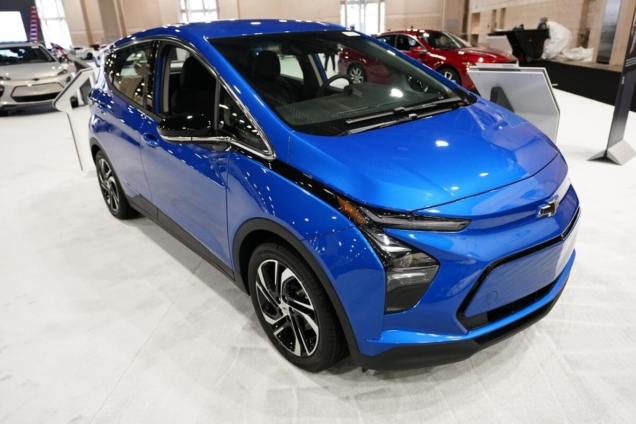As the world shifts towards sustainable energy solutions, the embrace of electric vehicles (EVs) presents both opportunities and challenges for nations like Ghana.
Positioned at the forefront of this transition, Ghana must navigate the implications of EV adoption on its socio-economic fabric while addressing hurdles in infrastructure development, maintenance expertise, and spare parts availability.
Socio-Economic Transformations
The adoption of electric vehicles promises significant socio-economic transformations for Ghana. Firstly, it opens avenues for job creation, particularly in the manufacturing, assembly, and servicing of EVs, which can spur economic growth and reduce unemployment rates. Additionally, shifting towards EVs can reduce Ghana's reliance on imported fossil fuels, promoting energy independence and mitigating the impact of volatile oil prices on the economy.
Moreover, EV adoption fosters environmental sustainability by curbing carbon emissions, thus improving air quality and public health, especially in regional capitals where vehicular traffic density is increasing. Cleaner air contributes to higher productivity and reduced healthcare costs, positively impacting the overall quality of life for Ghanaians.
Infrastructure Challenges
However, the widespread adoption of electric vehicles in Ghana faces significant infrastructural challenges. The current power grid may not be equipped to handle the increased demand for electricity that comes with widespread EV charging. Therefore, substantial investments in grid modernization and expansion are imperative to support the growing EV market.
Furthermore, the establishment of charging infrastructure is crucial. Ghana needs to develop a robust network of charging stations across urban and rural areas to alleviate range anxiety among EV users and encourage widespread adoption. Collaborations between the government, private sector, and international partners can accelerate the deployment of charging infrastructure nationwide.
Maintenance Skill Gap
One of the pressing challenges, is the availability of skilled personnel for EV maintenance and repair. Unlike traditional internal combustion engine vehicles, EVs require specialized knowledge and expertise due to their unique components and systems. Ghana must invest in vocational training programs and technical education to equip its workforce with the necessary skills to service and maintain EVs effectively.
Collaborations with international organizations and automotive companies can facilitate knowledge transfer and capacity-building initiatives, empowering local technicians to handle EV repairs proficiently. Additionally, incentivizing EV manufacturers to establish training centers and service facilities in Ghana can enhance local expertise and create employment opportunities.
Spare Parts Accessibility
Finally, ensuring the adequate availability of EV spare parts remains a critical challenge. As the EV market in Ghana matures, establishing a reliable supply chain for components and spare parts is essential to minimize downtime for vehicle repairs and maintenance. Strategic partnerships with global suppliers and domestic manufacturing incentives can facilitate the localization of spare parts production, reducing dependence on imports and enhancing supply chain resilience.
Conclusion
The transition to electric vehicles in Ghana heralds a promising future marked by economic prosperity, environmental sustainability, and technological advancement. However, addressing infrastructure limitations, bridging the maintenance skill gap, and ensuring spare parts accessibility are pivotal for realizing the full potential of EV adoption. By navigating these challenges with strategic investments and collaborative efforts, Ghana can emerge as a leader in sustainable transportation and drive inclusive socio-economic development for its citizens.
Latest Stories
-
Ghana and Seychelles strengthen bilateral ties with focus on key sectors
11 mins -
National Elections Security Taskforce meets political party heads ahead of December elections
15 mins -
Samsung’s AI-powered innovations honored by Consumer Technology Association
34 mins -
Fugitive Zambian MP arrested in Zimbabwe – minister
52 mins -
Town council in Canada at standstill over refusal to take King’s oath
1 hour -
Trump picks Pam Bondi as attorney general after Matt Gaetz withdraws
1 hour -
Providing quality seeds to farmers is first step towards achieving food security in Ghana
1 hour -
Thousands of PayPal customers report brief outage
2 hours -
Gary Gensler to leave role as SEC chairman
2 hours -
Contraceptive pills recalled in South Africa after mix-up
2 hours -
Patient sues Algerian author over claims he used her in novel
2 hours -
Kenya’s president cancels major deals with Adani Group
2 hours -
COP29: Africa urged to invest in youth to lead fight against climate change
3 hours -
How Kenya’s evangelical president has fallen out with churches
3 hours -
‘Restoring forests or ravaging Ghana’s green heritage?’ – Coalition questions Akufo-Addo’s COP 29 claims
3 hours

